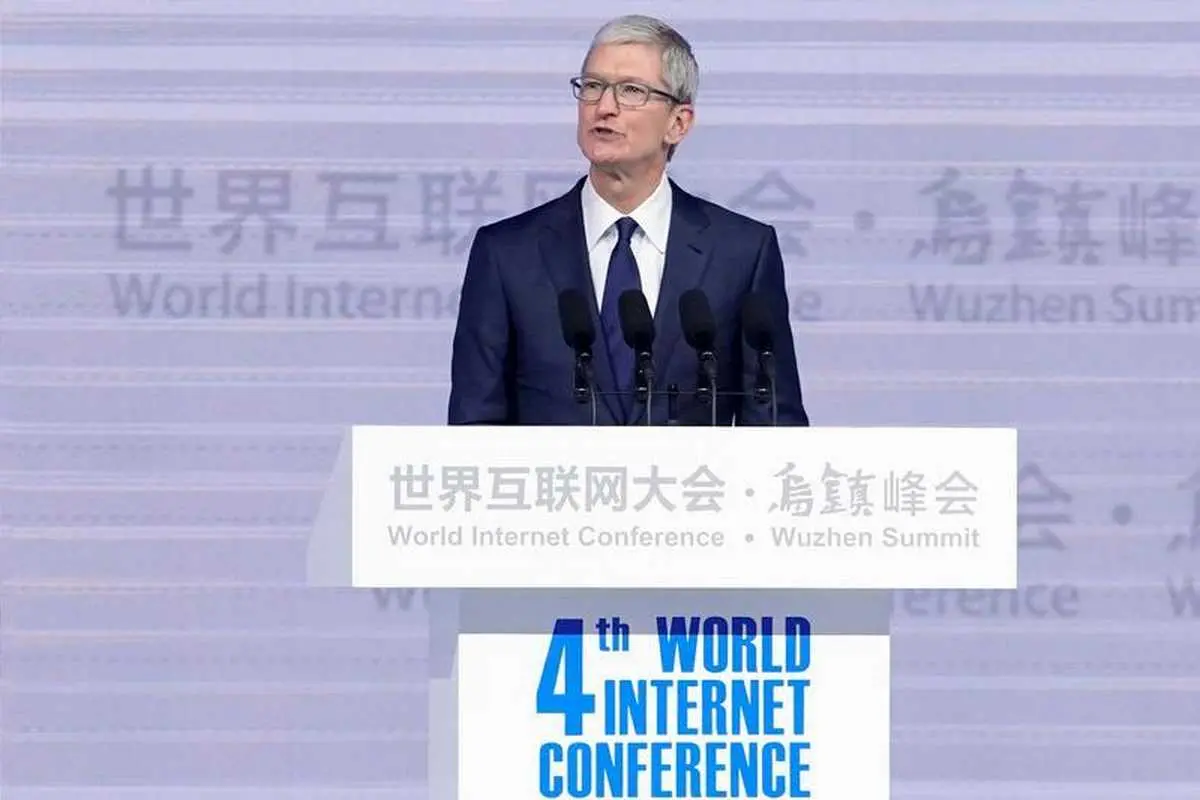PHOTO
NEW YORK - Tim Cook is going as American as Apple’s pie. The iPhone maker will pay $38 billion in tax on its huge pile of overseas cash. It’s also aping Amazon with plans to open a new U.S. campus, invest $30 billion over five years and create 20,000 jobs. With $252 billion in cash held overseas, the world’s most valuable company is the biggest target of the new U.S. tax law’s deemed repatriation provision, which imposes a one-off levy of up to 15.5 percent on those holdings. Apple didn’t say how much, if any, of that stash it would repatriate, but by highlighting its U.S. capital-expenditure plans the company clearly wants to climb on President Donald Trump’s “America First” bandwagon. It’s perhaps an especially useful message for a company that outsources so much to China and elsewhere.
Whether $30 billion in U.S. capital expenditure represents an increase is unclear given that the company doesn’t give a regional breakdown. Overall capex was $10.7 billion in the financial year ended September 2017, and Apple projects an increase to $16 billion in the current year. Some 61 percent of the company’s long-lived assets are in the United States, according to its latest annual report. In that proportion, a hefty $10 billion would be spent stateside this year alone. In any event, with over $200 billion of cash no longer trapped offshore, Cook will also have plenty of scope to increase dividends or buy back more shares.
The jobs promise looks equally undemanding. Apple’s 84,000 U.S. employees represent 68 percent of its global payroll. Assuming that percentage hasn’t changed, it has increased headcount in the United States by 24,000 over the past five years. And unlike Amazon, which set off a national bidding frenzy with its plan to set up a second headquarters employing some 50,000 people, Apple’s new facility will be more modest, housing technical support for customers.
Still, there’s plenty of symbolism in Wednesday’s announcement. Cook rose at Apple by masterminding a supply chain in which almost all of the company’s hardware is made in an elaborate network of offshore factories owned by other companies. In using the U.S. tax cuts to tout its American investments, the Apple boss has cleverly engineered some common ground with Trump.
CONTEXT NEWS
- Apple on Jan. 17 said it will pay $38 billion in U.S. tax on its overseas cash under the tax act signed into law by President Donald Trump in December. The company has previously set aside $36.3 billion in anticipation of the need to pay tax on those holdings.
- In the year to September 2017, Apple made net profit of $48.4 billion on sales of $229 billion. The company’s cash and marketable securities totaled $269 billion at Sept. 30.
- The company also said it plans to make $30 billion in capital expenditures in the United States over the next five years, including the building of a new campus that will initially house customer-support operations. The location of the new facility will be announced later this year. The investment is expected to create more than 20,000 jobs.
(Editing by Richard Beales and Martin Langfield)
© Reuters News 2018
Whether $30 billion in U.S. capital expenditure represents an increase is unclear given that the company doesn’t give a regional breakdown. Overall capex was $10.7 billion in the financial year ended September 2017, and Apple projects an increase to $16 billion in the current year. Some 61 percent of the company’s long-lived assets are in the United States, according to its latest annual report. In that proportion, a hefty $10 billion would be spent stateside this year alone. In any event, with over $200 billion of cash no longer trapped offshore, Cook will also have plenty of scope to increase dividends or buy back more shares.
The jobs promise looks equally undemanding. Apple’s 84,000 U.S. employees represent 68 percent of its global payroll. Assuming that percentage hasn’t changed, it has increased headcount in the United States by 24,000 over the past five years. And unlike Amazon, which set off a national bidding frenzy with its plan to set up a second headquarters employing some 50,000 people, Apple’s new facility will be more modest, housing technical support for customers.
Still, there’s plenty of symbolism in Wednesday’s announcement. Cook rose at Apple by masterminding a supply chain in which almost all of the company’s hardware is made in an elaborate network of offshore factories owned by other companies. In using the U.S. tax cuts to tout its American investments, the Apple boss has cleverly engineered some common ground with Trump.
CONTEXT NEWS
- Apple on Jan. 17 said it will pay $38 billion in U.S. tax on its overseas cash under the tax act signed into law by President Donald Trump in December. The company has previously set aside $36.3 billion in anticipation of the need to pay tax on those holdings.
- In the year to September 2017, Apple made net profit of $48.4 billion on sales of $229 billion. The company’s cash and marketable securities totaled $269 billion at Sept. 30.
- The company also said it plans to make $30 billion in capital expenditures in the United States over the next five years, including the building of a new campus that will initially house customer-support operations. The location of the new facility will be announced later this year. The investment is expected to create more than 20,000 jobs.
(Editing by Richard Beales and Martin Langfield)
© Reuters News 2018





















